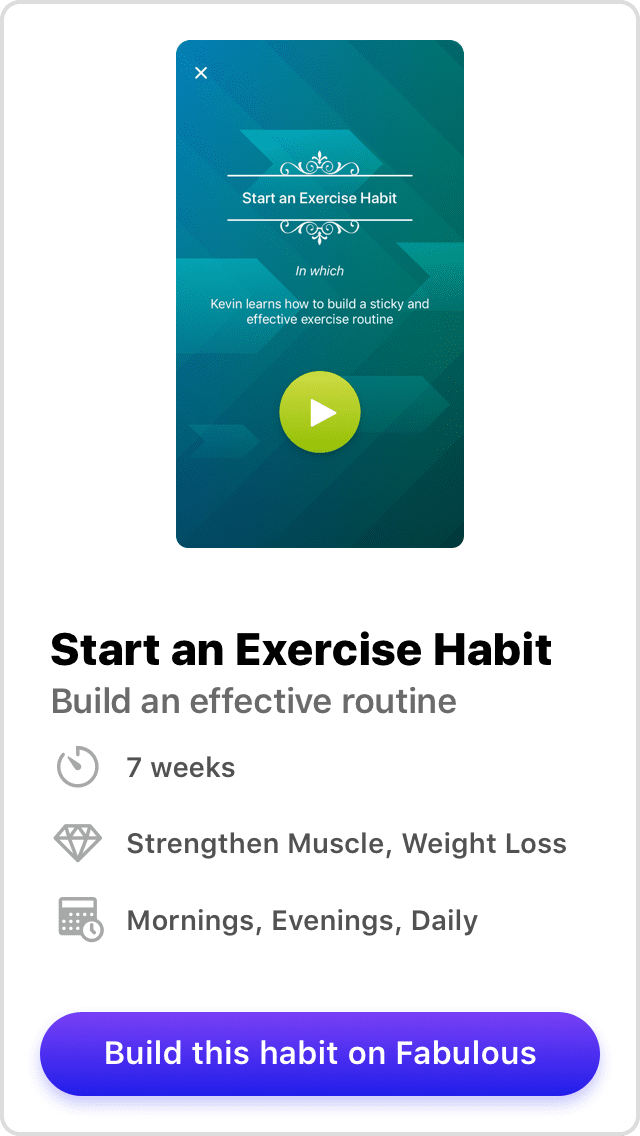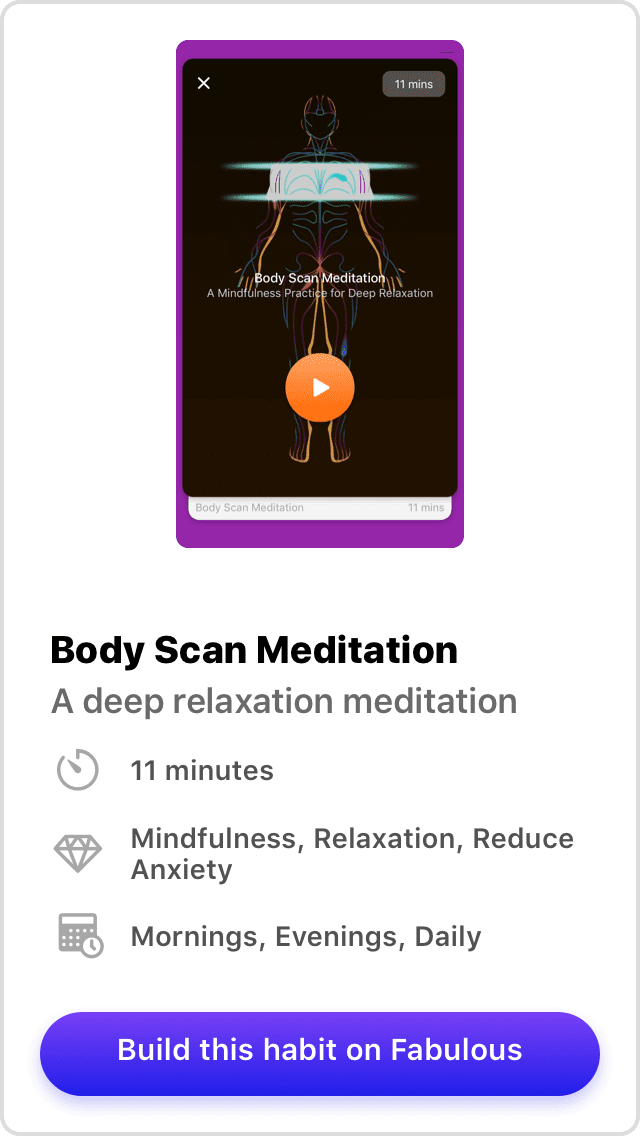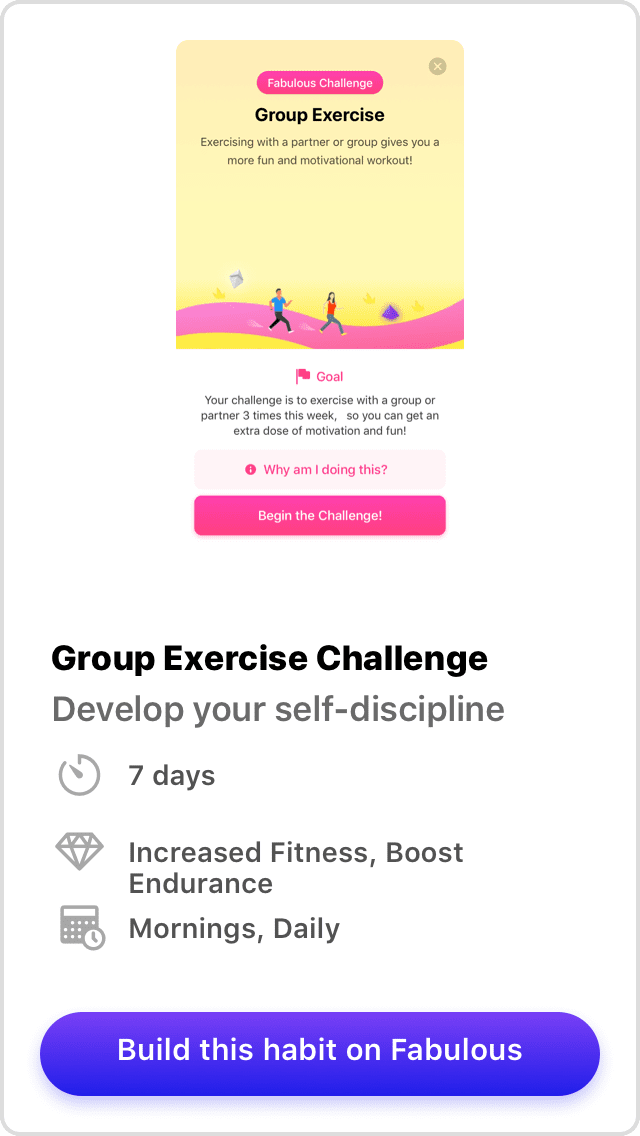You’ve finally had enough! Starting tomorrow, you are going to hit the gym and work out with complete dedication. You are fired up and ready to go. In fact, you are filled with so much energy that you think: What if I spend twice as long working out?
When it comes to workout duration, most experts recommend anywhere between 45 to 90 minutes. But hold on! Before you rush out the door right away, here are a few things to consider. Remember, there is no single number that applies to everyone equally.
Thinking of starting an exercise routine, but don’t know where to begin? Then “Start an Exercise Habit” is the perfect Journey for you!
Warming Up
Before we discuss how long a workout can last, it’s crucial to remember that physical activity requires proper warming up. This isn’t just about stretching your muscles before starting your workout, mind you. Many of the people who are wondering for how long they can work out are probably just about to start a new routine.
The aim of a workout is to challenge you physically so that you can boost your fitness levels and overall quality of health. But workouts are only truly effective if they are done consistently over a long period of time. It can be tempting to get a head start on that fitness journey by working out till you drop on the very first day. But you’ll risk getting injured or extremely fatigued. And your fitness journey would end before it even began.
So, if you are about to start working out, make sure you take it easy. Yes, it’s important to challenge yourself, but don’t overburden your body. Just remember the old adage, “Slow and steady wins the race!”
Many Small Sessions Versus Few Big Ones
The best way to plan your workouts is by fixing your weekly calendar, rather than just focusing on one day at a time, which is when the issue of spreading out your workouts arises. Before you figure out how long you can work out in a day, ask yourself how often you can work out.
Every session of physical activity provides both long and short term benefits. For example, each time you jog on the treadmill, you are strengthening your cardiovascular system. But at the same time, your body will experience several short-term benefits that are equally important as well. Working out boosts your blood circulation, releases endorphins and dopamine, aids in regulating your sleep, and boosts your metabolism.
In order to reap such benefits, aim for shorter, more regular workout sessions rather than fewer long ones. Rather than working out for an hour and a half every Tuesday and Friday, for example, work up a sweat for thirty minutes every other day. In other words, if you had to choose, opt for frequent visits to the gym over longer ones!
More Isn’t Always Better
By now some of you might be getting impatient. Yes, you’ve already warmed up and yes, you have spread out your workouts over the course of a week. Now, how long can you work out for?
As with most things concerning the human body, the answer is: it depends. There are several factors to consider, such as your fitness levels, your age and overall physical health, the type of workout you are doing, your diet, and so on.
But even with all such considerations, there are some absolute truths when it comes to workout durations. Here’s why there’s is a definite upper limit to the amount of time you should work out.
More Quantity, Less Quality
The more time you spend working out, the more tired you’ll become. That sounds obvious, right? But what happens when you start tiring out? Your workout starts to suffer. Whether it’s aerobics or yoga or strength training, continuing with the activity after you’ve tired out is a recipe for disaster. The last thing you’d want is to twist your ankle or buckle under a barbell. You run the risk of injuring yourself and undoing all the good work you’d achieved with the workout up to that point.
Robbing Yourself of Recovery
Movie montages can fool us into thinking our bodies only improve when we’re puffing and pulling with all our might. But even Rocky needed plenty of sleep and rest to recover from his workouts! If you spend too long on a physical activity, you’ll deprive your body of the rest it needs. And make no mistake, the most important changes in your body happen after you’ve returned home.
Be Consistent, Not Comprehensive
You might be tempted to capitalize on your momentum and extend your workout. Sometimes everything falls into place and you feel really good about your physical condition, right? But it’s best to temper that enthusiasm and focus on long-term goals. Working out for longer when you are feeling good and then abandoning it when you feel sore or bored isn’t healthy. So don’t target every muscle in your body today and be too exhausted or bored to work out for a while. Being consistent, rather than comprehensive when it comes to physical activity, is the key.
Running on Empty
Another reason why you shouldn’t work out for too long is that it can trigger a rise in cortisol levels. Some experts believe this can lead to your body using protein as fuel rather than carbohydrates, thereby eradicating the positive gains from your workout. Furthermore, higher cortisol levels can lead to more inflammation in the body, which makes it harder for you to recover.
Stress can raise your cortisol levels and affect your physical performance as well. By doing the “Body Scan Meditation” session in the app’s Make Me Fabulous section, you’ll learn to practice deep relaxation that melts away the stress and heals your body and mind.
The Magic Number for How Long You Should Work Out
As mentioned earlier, 45 to 90 minutes is the ideal duration of a workout. But structuring your workouts solely around time duration is pointless if you aren’t making the best use of your time! When experts say 45 minutes, it doesn’t include checking your phone, chatting with buddies at the water cooler, or taking a break to watch the overhead television screen.
And even if you aren’t wasting time in your workouts, focus on listening to your body rather than watching the clock. If you feel too tired, it’s better to stop and return soon than power through simply to reach the time limit.
So if the question is: How long should I work out for?
The answer is: For as long as it’s possible to work out in an effective manner without getting too tired, without wasting time, without risking injury, and without risking regular returns to said workout.
Wondering if you can work out for long enough without getting bored or demotivated? Take up the “Group Exercise” Challenge and experience a more fun and motivational workout with a partner or group!






